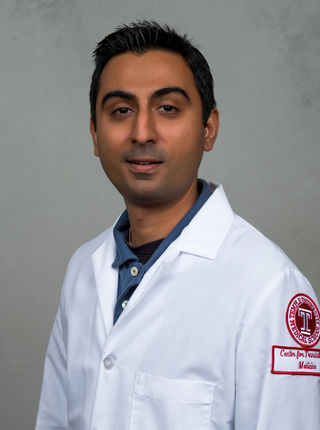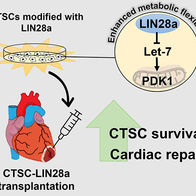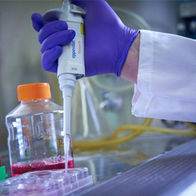Mohsin Khan, PhD
Associate Professor, Cardiovascular Sciences
Associate Professor, Center for Metabolic Disease Research

- Contact Information
-
- About Me
-
Research Interests
Research my laboratory is focused on the overarching premise that reactivation of embryonic signaling in the adult or aged heart enhances cardiac repair potential after injury. Ongoing efforts focus on 1) identification of embryonic factors regulating neonatal cardiac repair using system biology approach, and 2) re-introduction of pro-reparative factors to enhance cardiac progenitor cells and cardiomyocyte based repair programs.
The neonatal heart is composed of rapidly diving cardiomyocytes and cardiac progenitor cells (CPCs) able to repair injured myocardium. This repair ability is lost in the adult and aged heart making it vulnerable to development of disease. Whether CPCs and cardiomyocytes can be reversed into an intermediate developmental state remains untested. We have identified a unique embryonic microRNA signaling complex and its pro-reparative effects on CPCs and cardiomyocytes. The lab currently is using in vitro and in vivo techniques including mouse transgenesis to measure functional changes in CPCs and cardiomyocyte proliferation, survival and metabolism in response to re-introduction of embryonic reparative factors. Additionally, using exosomes derived from stem cells we aim to utilize the benefits of cell therapy and develop an understanding between cell communication and tissue repair.
An additional focus in the lab is to understand CPC/cardiomyocyte ability to repair the heart in connection with disease onset such as diabetes and aging. Evidence from literature shows that diabetic stem cells have impaired function and cardiac repair ability. Many of signaling factors and mechanistic details for diabetes induced impairment remain undefined. We are conducting identification based screens for novel modulators of diabetes using CPCs derived from the heart as the model system. The ultimate goal is to develop a translational approach using human stem cells to augment cardiac function affected by myocardial injury.
- Education, Training & Credentials
-
Educational Background
- Fellowship, Embryonic stem cell derived exosomes for cardiac repair, Laboratory of Raj Kishore, Northwestern University, Chicago, IL, 2014
- Fellowship, B-adrenergic regulation of cardiac progenitor cell function, Laboratory of Dr. Mark Sussman, San Diego State University, San Diego, CA, 2013
- PhD, Molecular Biology, National Center of Excellence In Molecular Biology, Lahore, Pakistan, 2008
- MS, Zoology, Government College University, Lahore, Pakistan, 2002
- BS, Biological Sciences, Forman Christian College, Lahore, Pakistan, 2000
Memberships
- American Heart Association
- Temple Institute of Regenerative Medicine and Engineering
- International Society for Heart Research
- Publications
-
Digital Bibliography


